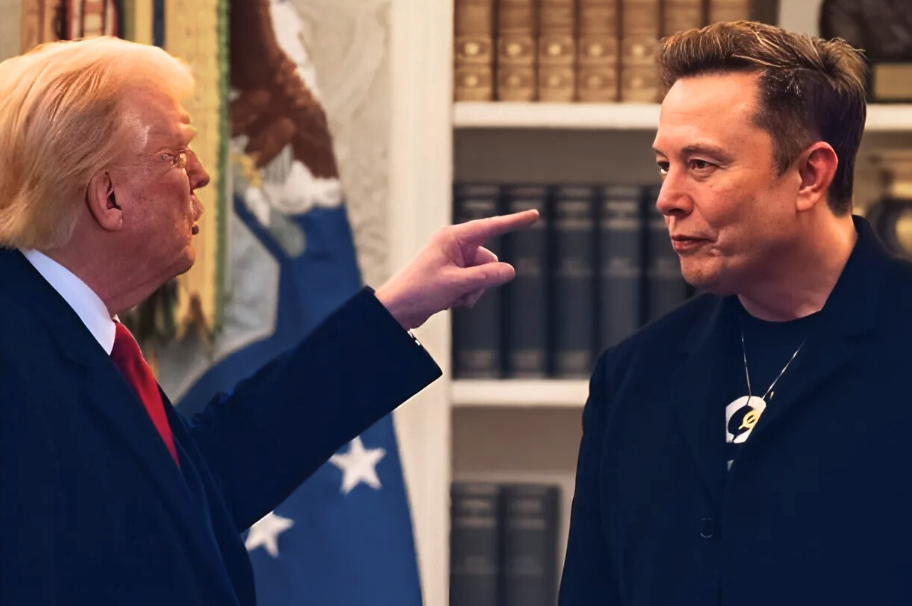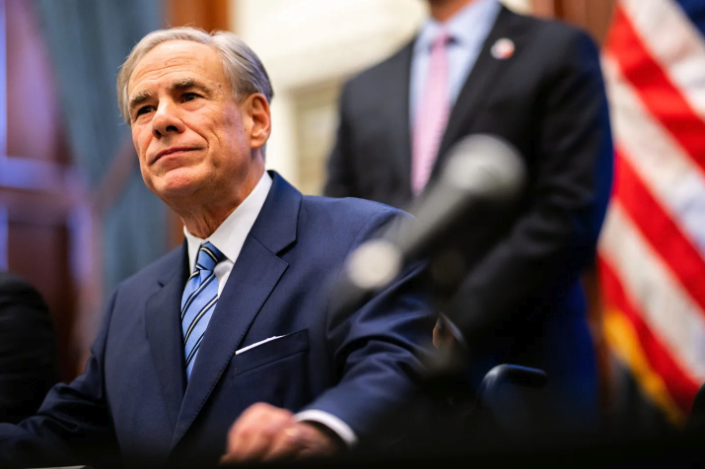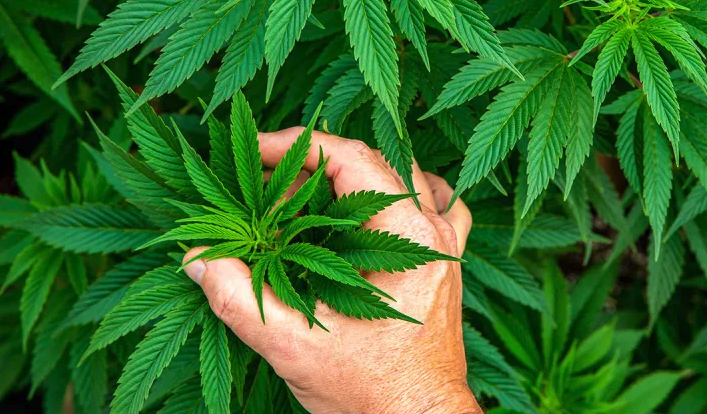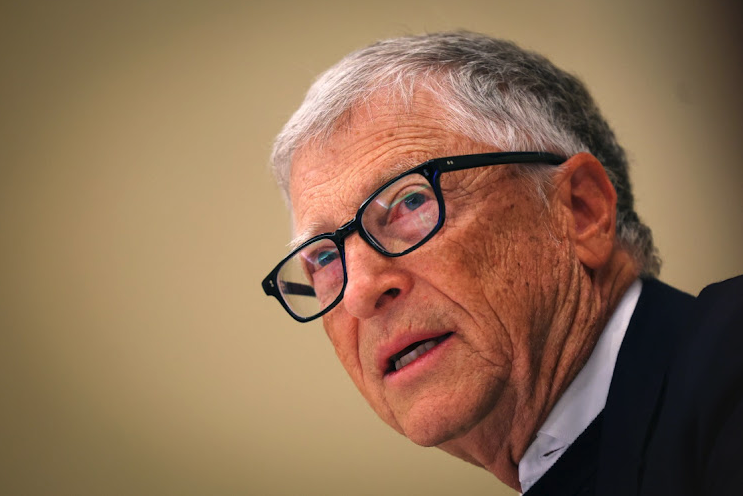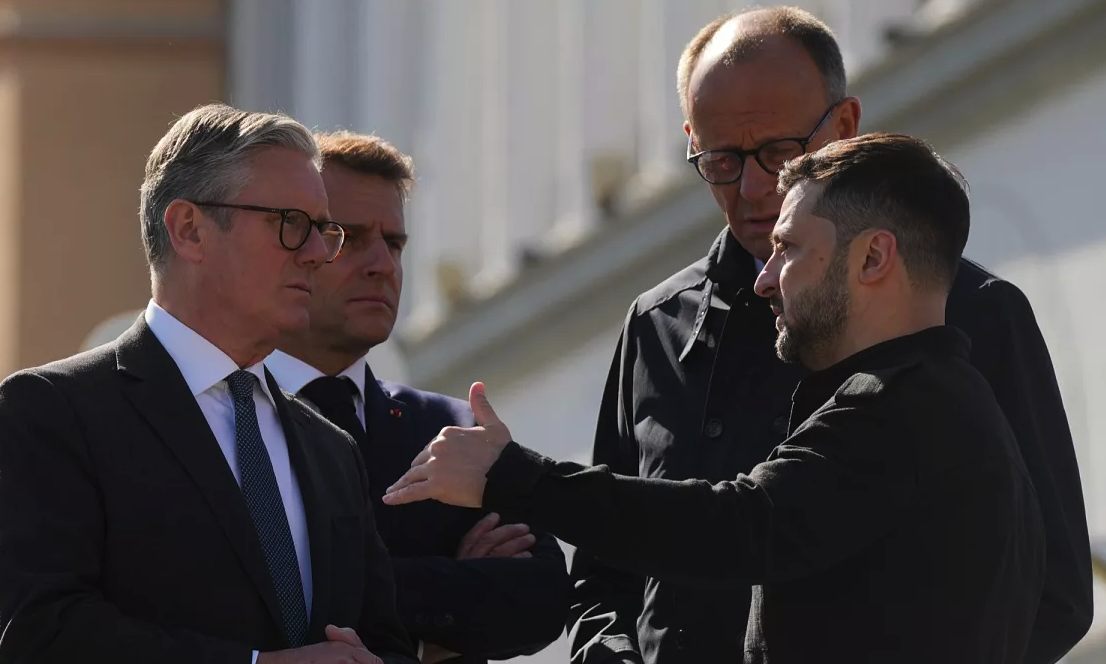Can Trump’s hotel deal and tariff relief save Serbia’s Vucic from 100,000-strong protests?
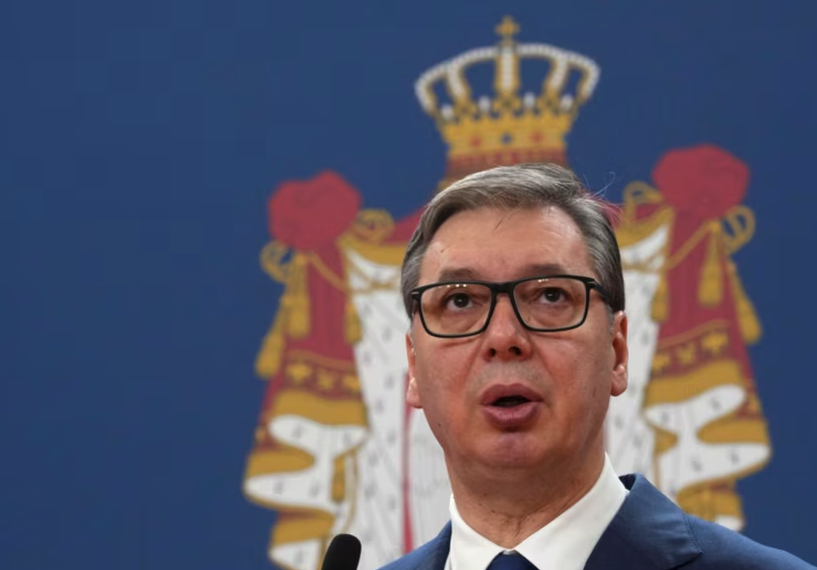
In Belgrade, where the Danube and Sava rivers converge, Serbia’s President Aleksandar Vucic faces a political storm.
For six months, anti-government protests have gripped the nation, with over 100,000 demonstrators flooding the capital on March 15, 2025, demanding accountability and reform.
Vucic’s early return from a U.S. trip due to illness has further dented his strongman image.
Amid these challenges, Vucic is looking to an unlikely ally: Donald Trump. As Trump prepares for a potential second term, can he provide the boost Vucic needs to stabilize his leadership?
A History of Ties with Trump
Vucic’s relationship with Trump began prominently in 2020 at a White House summit.
Brokered by then-U.S. envoy Richard Grenell, Serbia and Kosovo signed an agreement to normalize economic relations, a diplomatic coup for Trump.
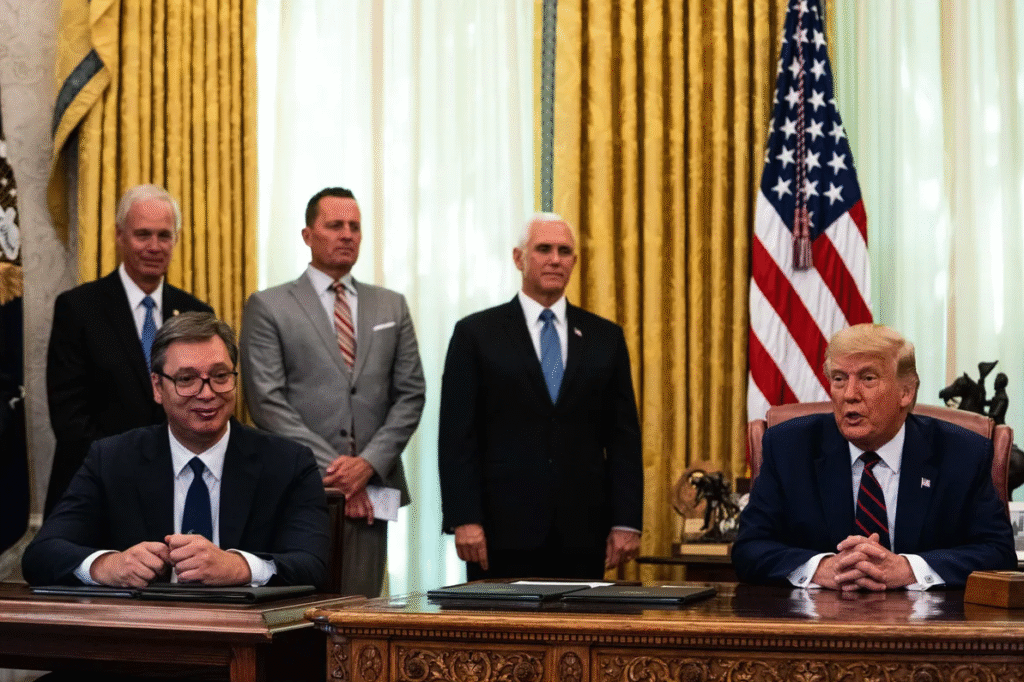
Following Trump’s recent U.S. election victory, Vucic was quick to reconnect. He described their post-election phone call as “very cordial” and invited Trump to visit Belgrade.
This popularity could bolster Vucic’s domestic standing, but it also risks alienating critics wary of foreign influence.
The Trump Tower Controversy
A significant aspect of the Trump-Vucic relationship is a proposed $500 million Trump International Hotel in Belgrade, spearheaded by Jared Kushner’s Affinity Partners.
The project, set to transform the site of the former Yugoslav Ministry of Defense—bombed by NATO in 1999—into a luxury hotel, apartments, and office space, has sparked intense controversy.
The project hit a major setback when Goran Vasic, a former official, admitted to forging documents to remove the site’s protected status, leading to his arrest.
The scandal has placed Vucic in a precarious position, as critics accuse him of prioritizing foreign interests over national heritage.
The project’s future remains uncertain, potentially undermining Vucic’s efforts to project strength through Western partnerships.
Economic and Political Opportunities
Vucic sees Trump as a potential lifeline for Serbia’s economic and political challenges.
The 37% tariff on Serbian exports to the U.S., imposed under the current administration, has strained Serbia’s economy.
A Trump administration might ease these tariffs, providing economic relief and bolstering Vucic’s domestic support.
Additionally, Trump’s transactional foreign policy could favor Serbia, given its strategic importance in the Balkans.
Vucic has already aligned himself with Trump’s rhetoric.
On Donald Trump Jr.’s podcast in March 2025, he echoed Trump’s criticism of foreign-funded NGOs, a move aimed at resonating with Trump’s base.

Regional Implications
Trump’s potential return could reshape the Balkans’ geopolitical landscape.
In Bosnia, Milorad Dodik, leader of Republika Srpska, is optimistic that Trump will reduce U.S. pressure on his entity.
Dodik, who has worn a MAGA hat and called Trump’s victory a “victory” for Republika Srpska, sees a Trump administration as a chance to advance his agenda.
Kosovo, recognized by the U.S. as independent since 2008, is wary of Trump’s return.
A shift in U.S. policy could weaken Kosovo’s position and embolden Serbia’s stance against its independence.
Serbia’s alignment with Trump could also strain relations with neighbors.
Experts warn that Vucic’s ties to Hungary’s Viktor Orban and Russia’s Vladimir Putin, alongside Trump’s influence, could form a “triangular brotherhood” that complicates Serbia’s EU aspirations.
| Aspect | Details |
|---|---|
| Vucic’s Challenges | 6 months of protests, government resignation, 37% U.S. tariff, health issues |
| Trump-Vucic Ties | 2020 White House summit, cordial post-election call, Belgrade invitation |
| Trump Hotel Project | $500M project on hold due to forgery scandal, protests over NATO bomb site |
| Public Opinion | 59% of Serbs approve of Trump (2024 poll) |
| Regional Impact | Potential shifts in Bosnia, Kosovo; concerns over Serbia’s nationalist goals |
Public Opinion and Strategic Maneuvering
Trump’s 59% approval rating in Serbia offers Vucic a potential advantage.
By aligning with Trump, Vucic can appeal to pro-Trump factions within Serbia, particularly those skeptical of Western NGOs and EU integration.
However, this strategy risks alienating pro-EU and anti-Trump segments of the population, who view foreign influence with suspicion.
Vucic’s appearance on Donald Trump Jr.’s podcast and his invitation to Trump demonstrate a calculated effort to leverage Trump’s popularity.
Yet, the controversy surrounding the Trump hotel project could undermine these efforts, as protests continue to highlight public discontent with Vucic’s leadership.
Expert Perspectives
Analysts offer mixed views on Trump’s potential impact.
Vladimir Trapara, a senior research fellow at Belgrade’s Institute of International Politics and Economics, warns that reduced U.S. pressure could embolden nationalist agendas in the region.
Can Trump revive Vucic’s struggling leadership? The answer hinges on several factors. Economic relief, such as lifting U.S. tariffs, and diplomatic support could strengthen Vucic’s position.
However, the Trump hotel controversy and ongoing protests pose significant risks. Trump’s unpredictable foreign policy and Serbia’s complex regional dynamics add further uncertainty.
While Vucic’s alignment with Trump may resonate with his base, it could deepen domestic divisions and complicate Serbia’s EU aspirations.
In the volatile world of Balkan politics, Trump’s influence is a double-edged sword—one that Vucic must wield carefully.





